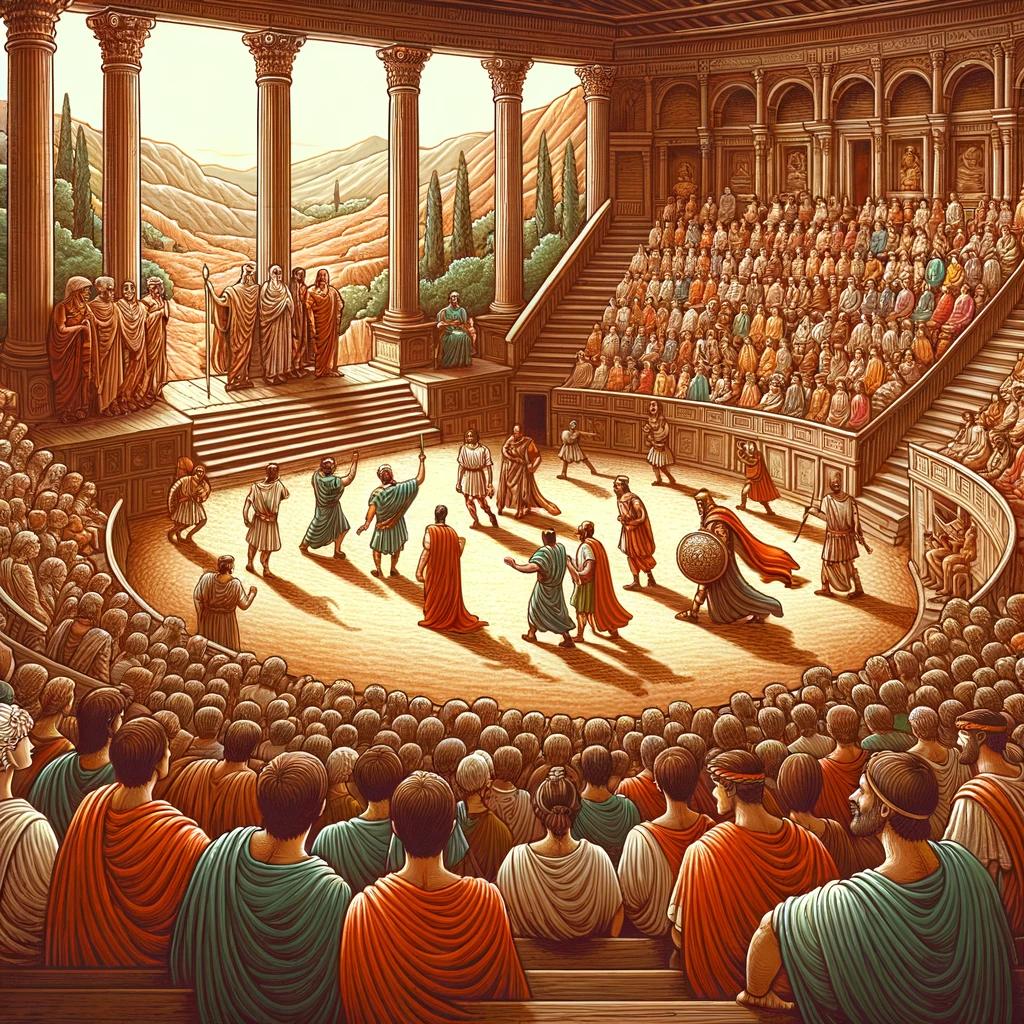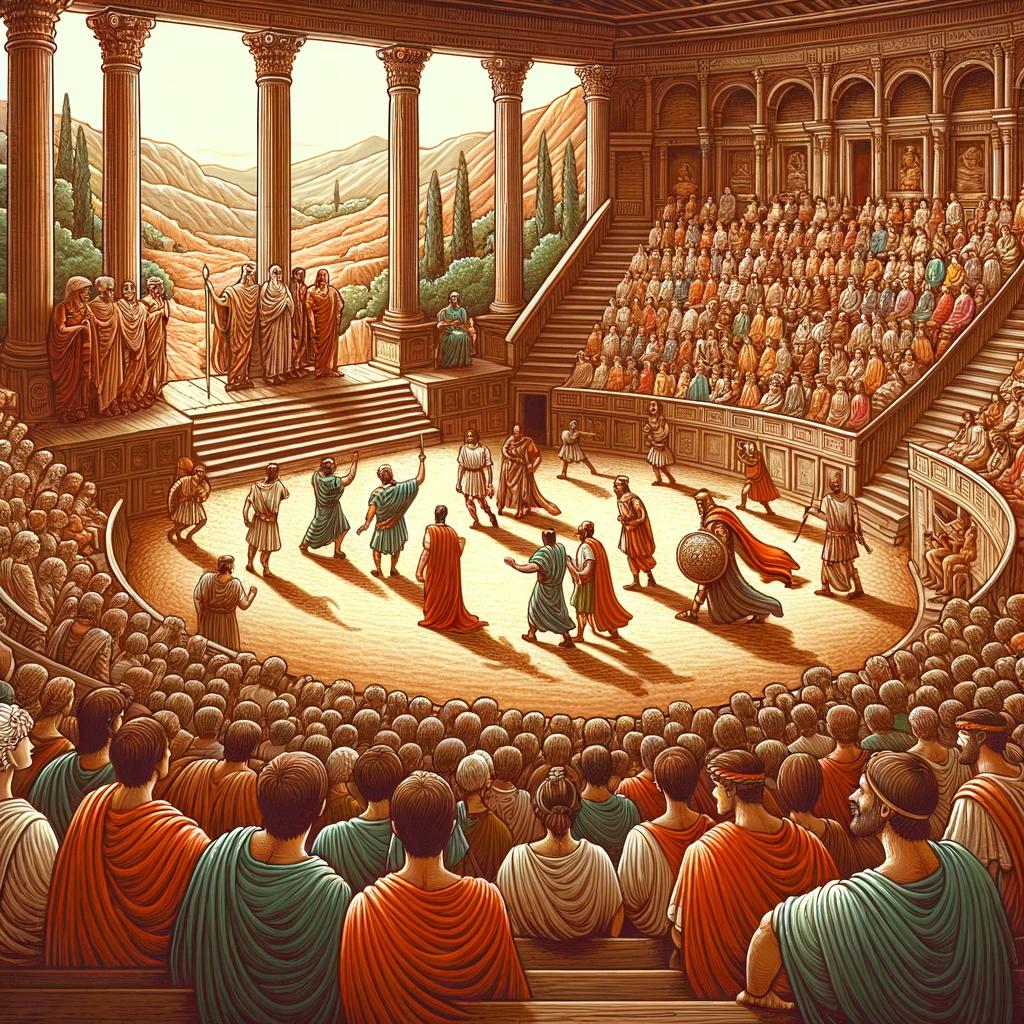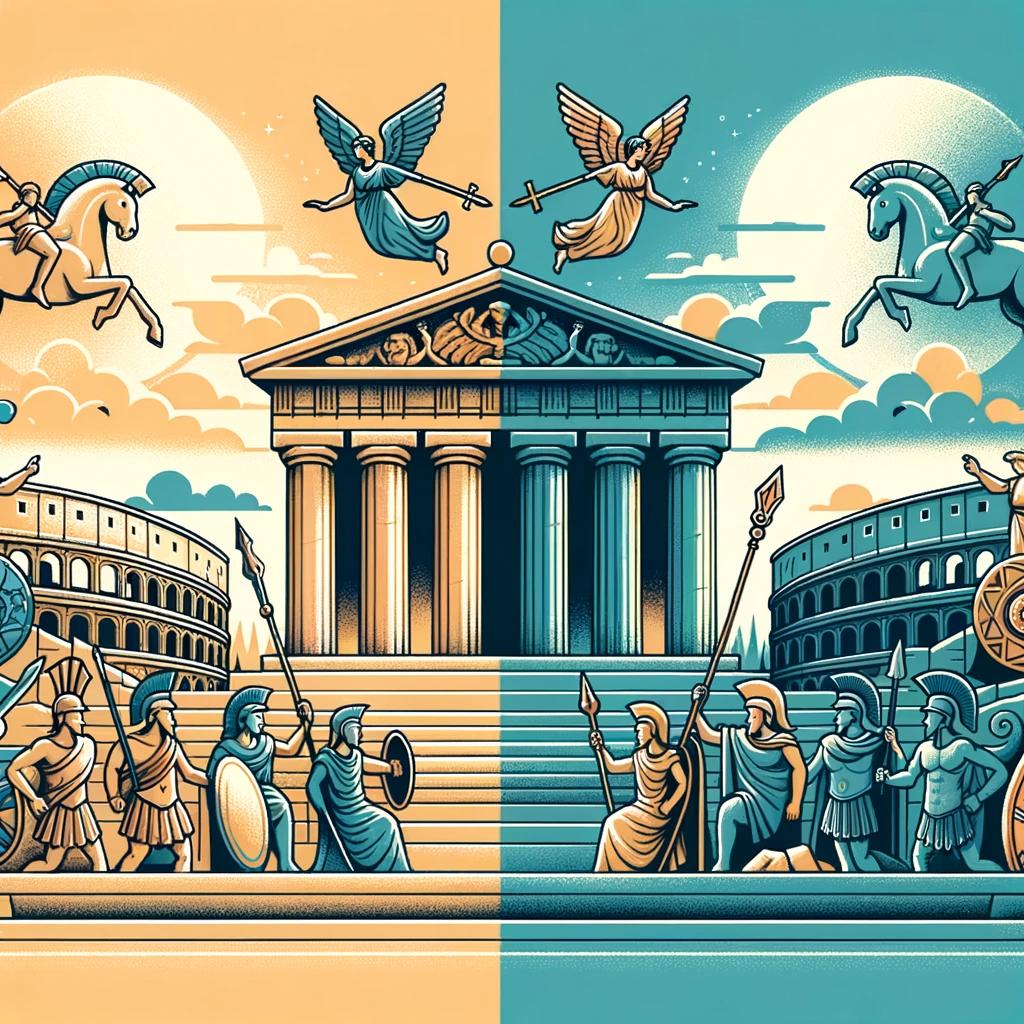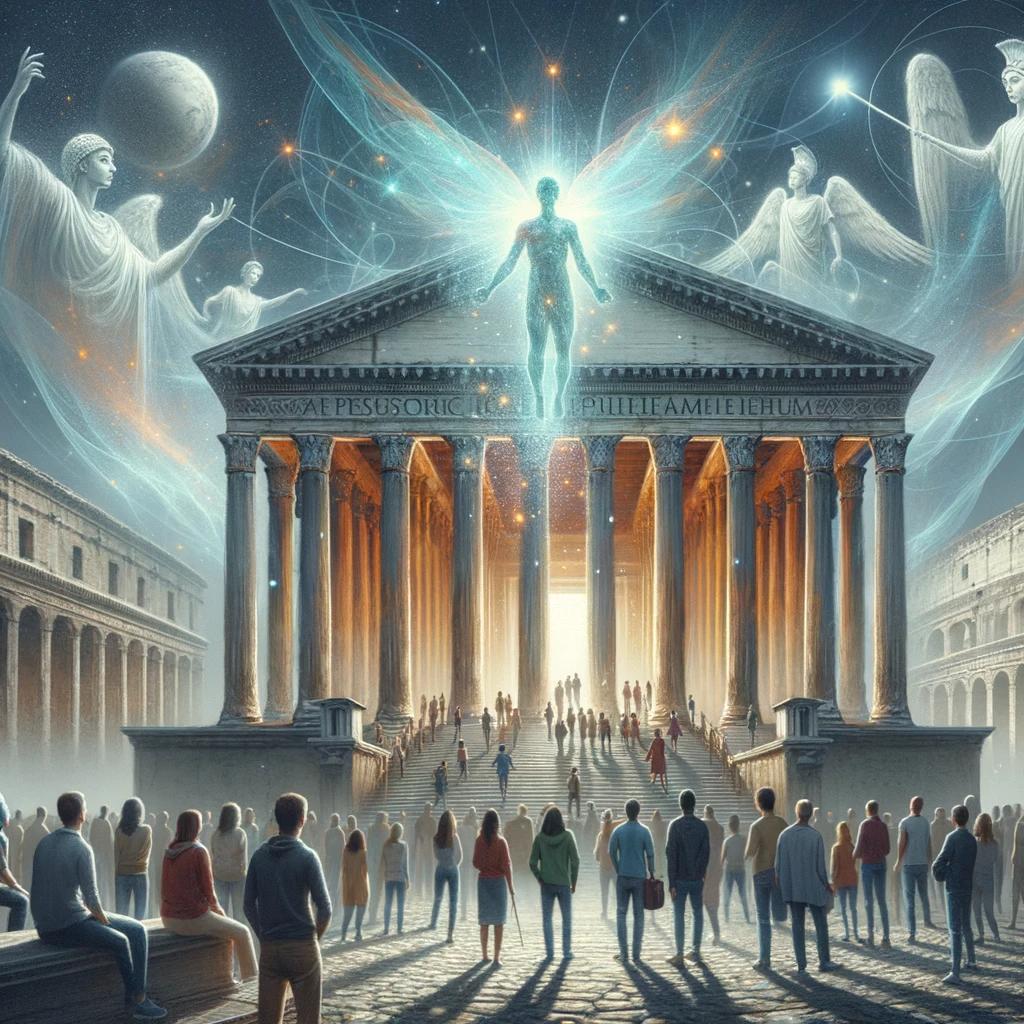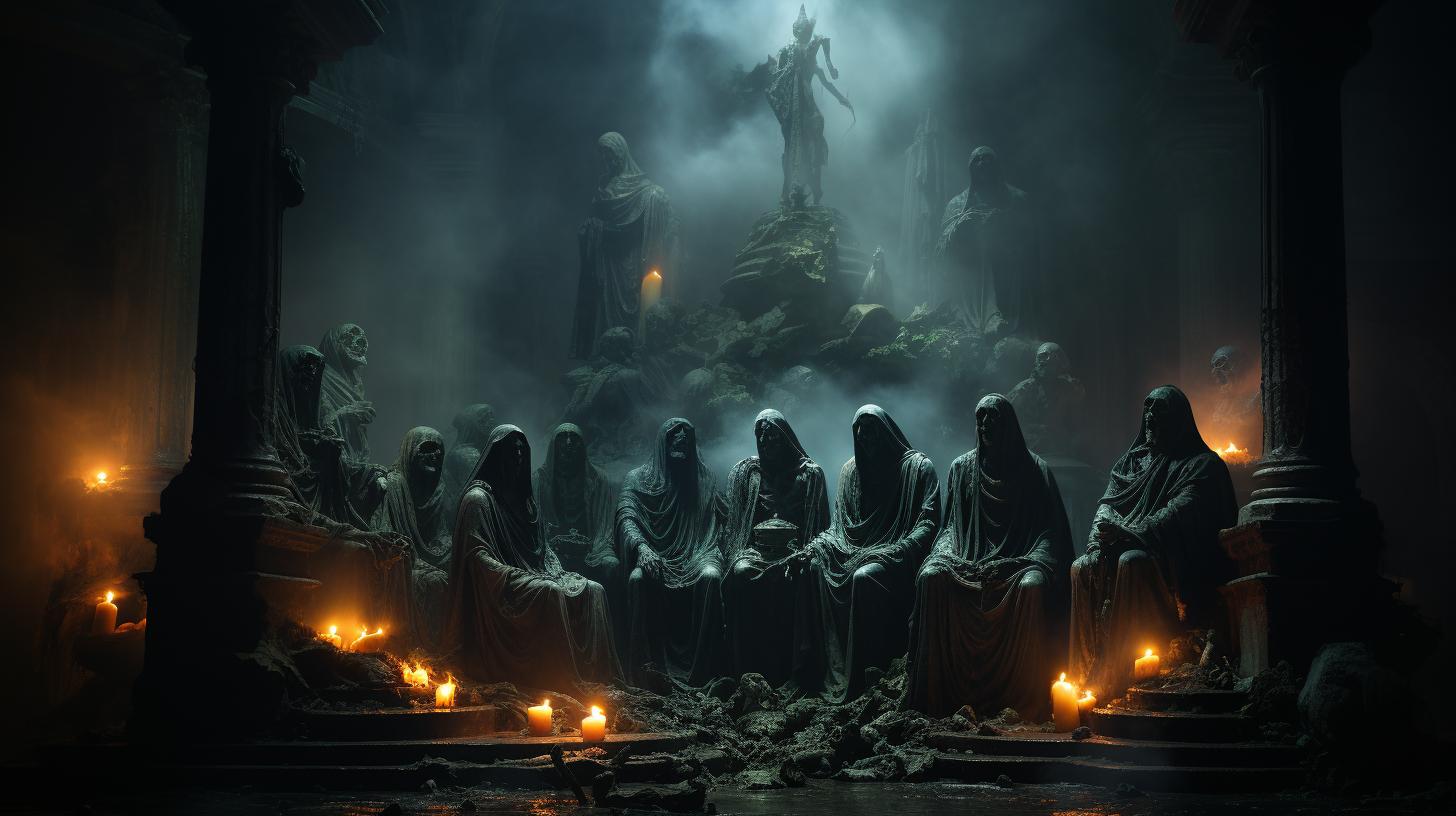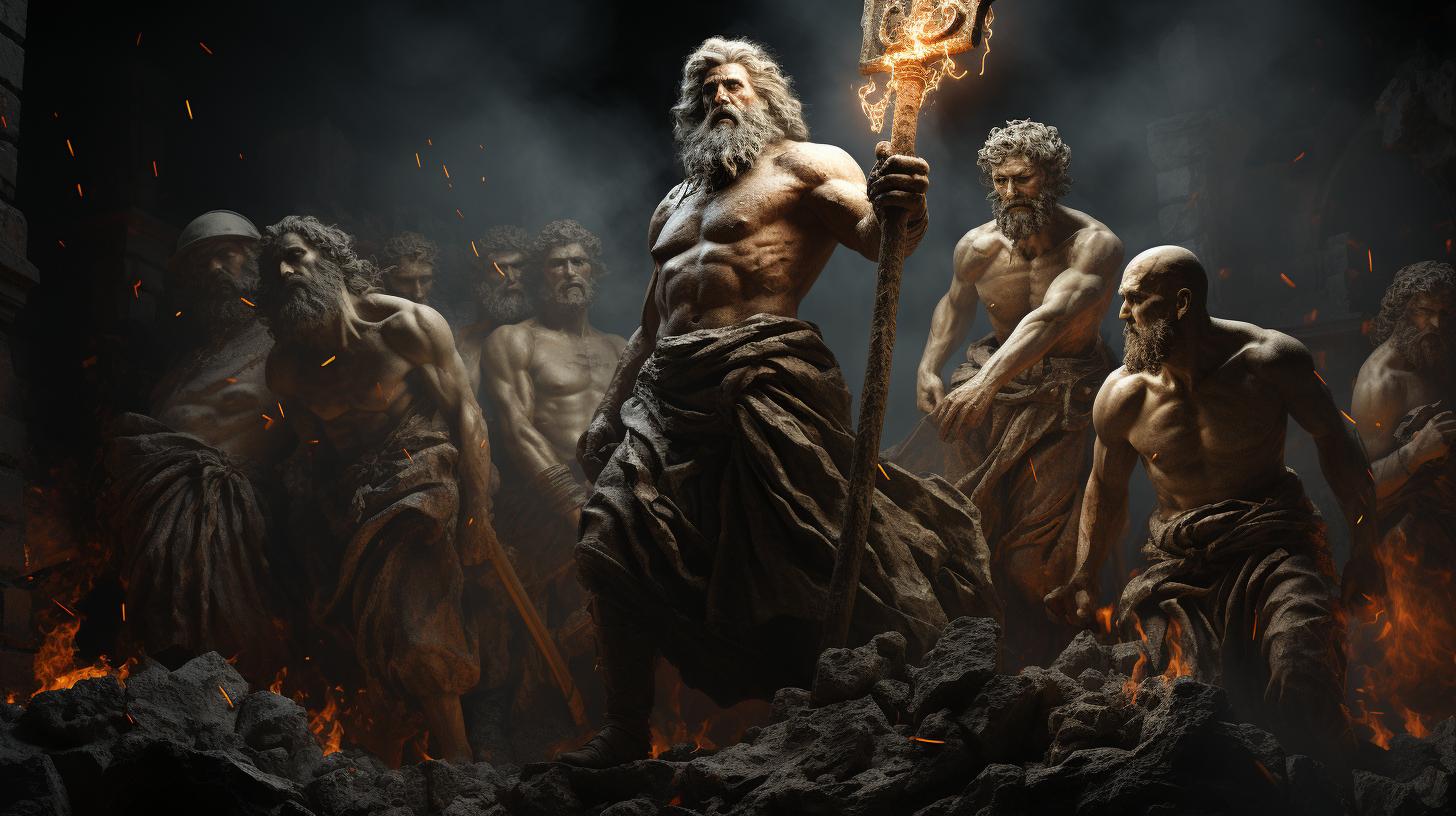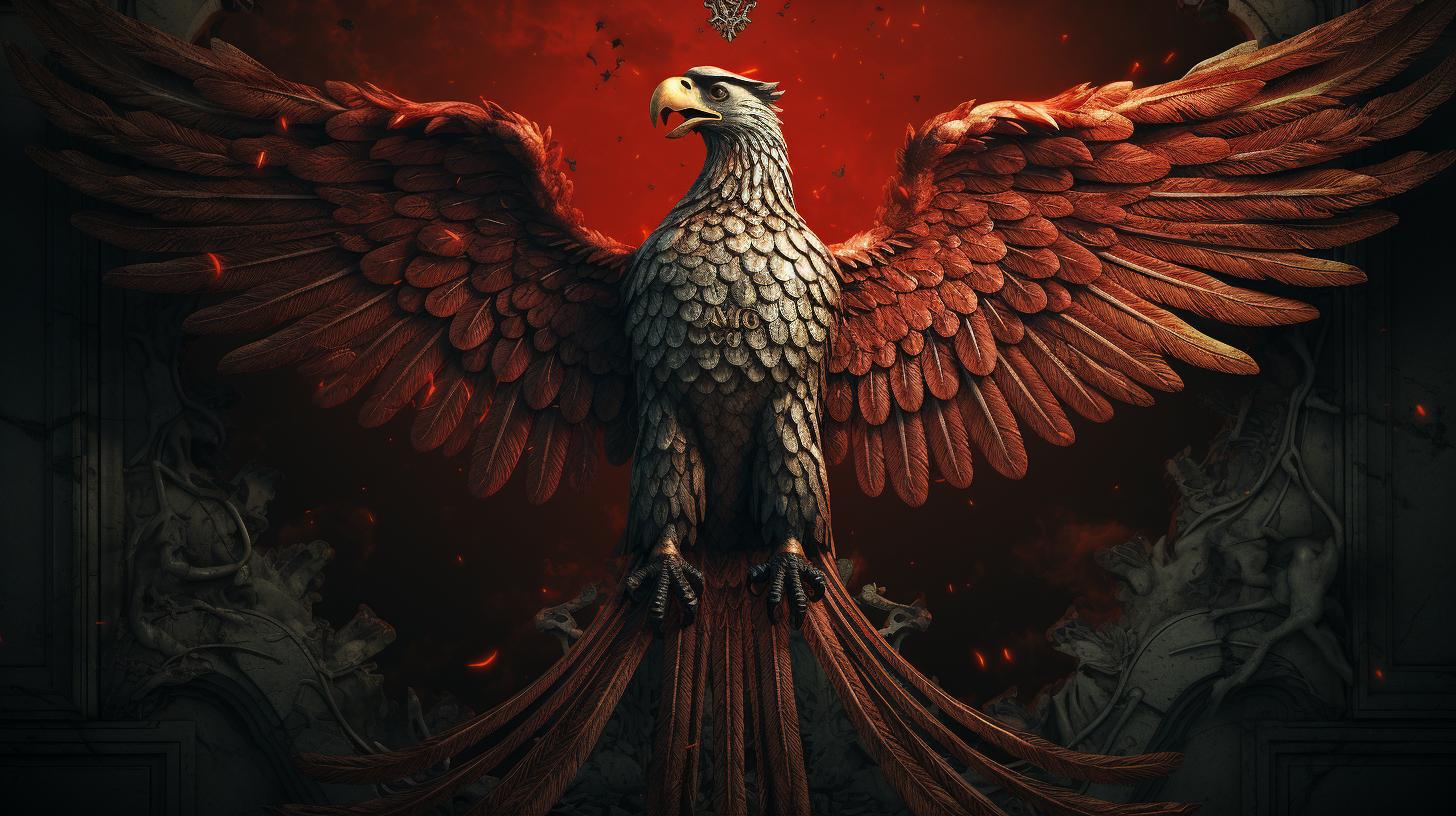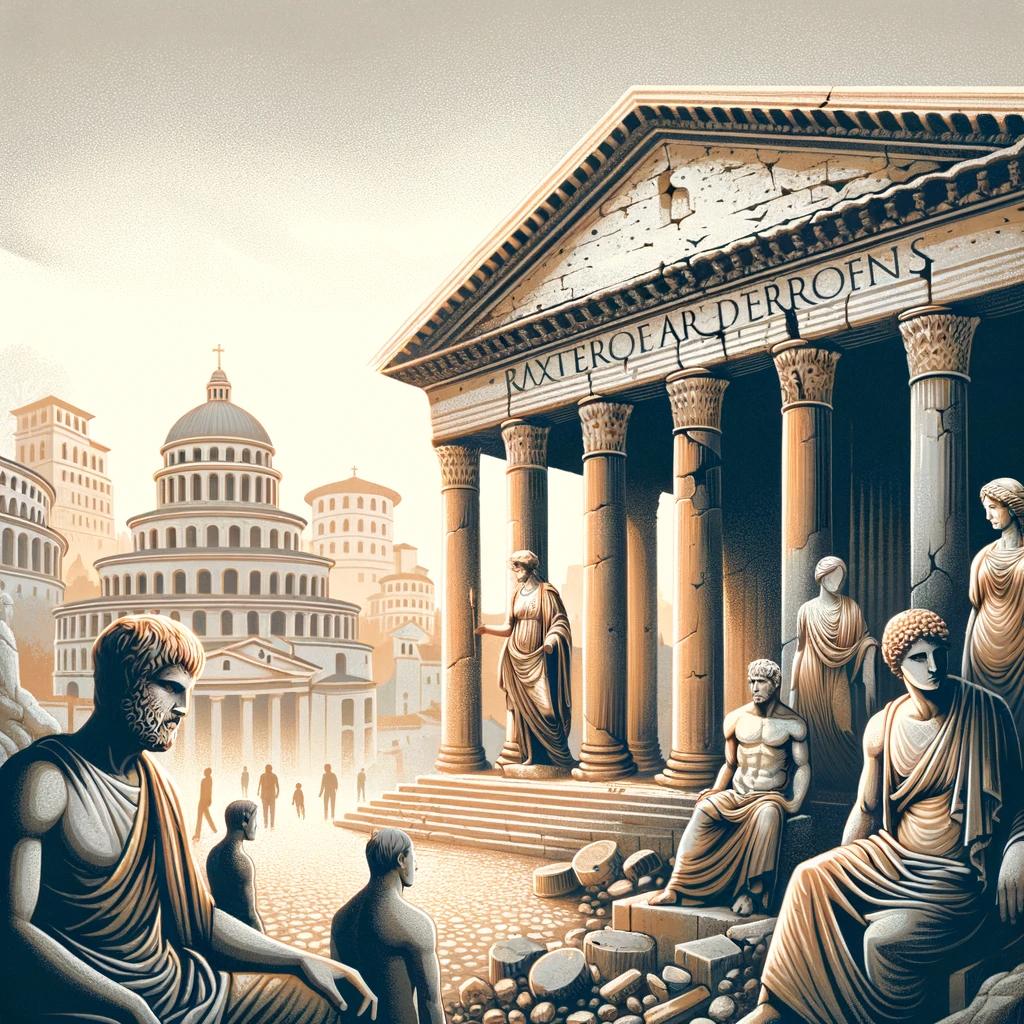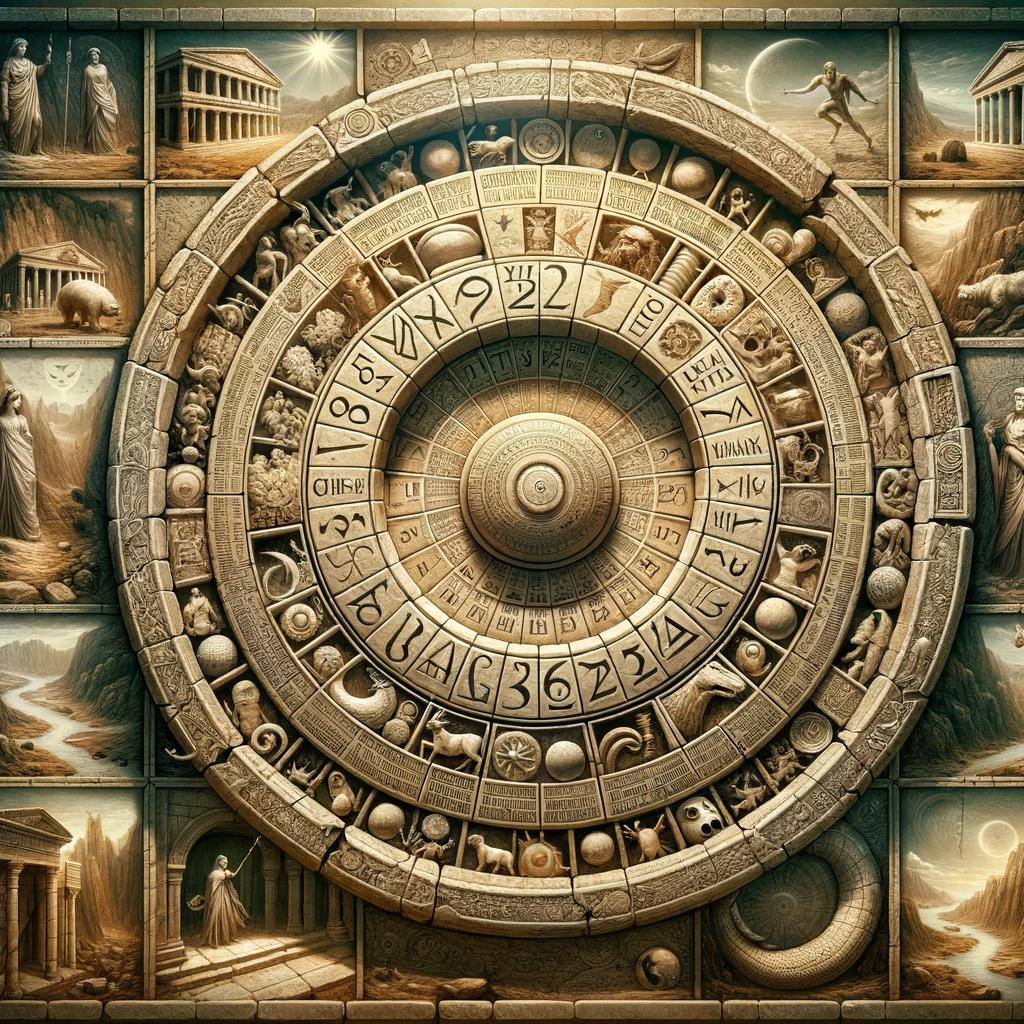How Did Roman Mythology Start: Unraveling the Ancient Origins
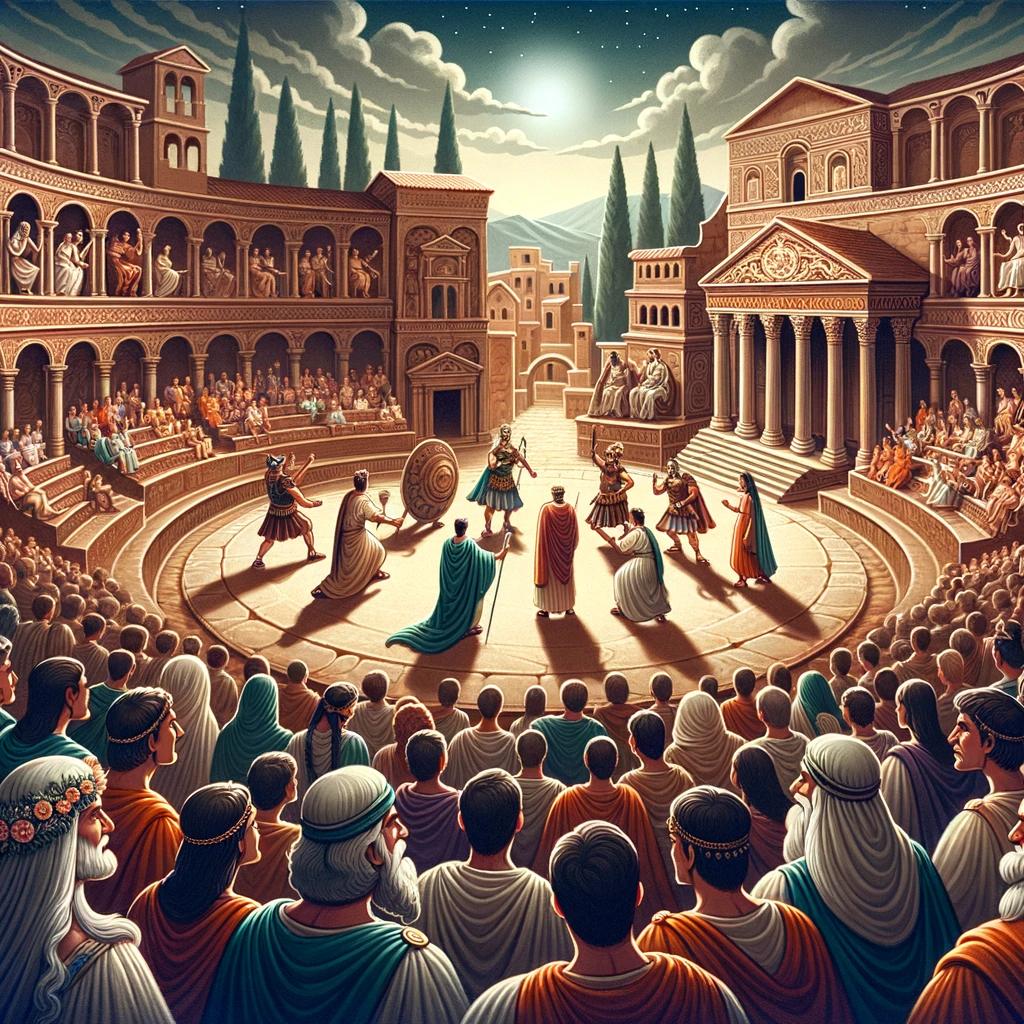
Roman Mythology has its roots in ancient times and is heavily influenced by Greek mythology. It incorporates local deities and is filled with captivating stories and legends. The pantheon of Roman gods and goddesses played significant roles in the lives of the ancient Romans.
Creation myths in Roman mythology explain the origins of the universe, humans, and the world. This rich mythology held great religious and cultural significance, manifesting in temples, rituals, and festivals. Today, Roman mythology continues to leave a lasting impact on Western culture and can be seen in various forms of art and literature.
Roman Mythology Beginnings
In order to understand the origins of Roman Mythology, it is important to explore its various components and influences. Roman Mythology draws upon a rich tapestry of stories, beliefs, and traditions that shaped the religious and cultural practices of ancient Rome.
From the origins of this mythology to its incorporation of local deities and the influence of Greek mythology, the beginnings of Roman Mythology provide a fascinating insight into the development of this ancient belief system.
Origins of Roman Mythology
The exact origins of Roman Mythology are uncertain, but it is believed to have emerged around the 8th century BCE. The early Romans practiced a form of animism, associating natural phenomena with deities and spirits.
Over time, these beliefs evolved and blended with influences from neighboring cultures, shaping the unique mythology that would come to define ancient Rome.
Influences from Greek Mythology
Greek mythology had a profound impact on Roman Mythology. The Romans, deeply impressed by the cultural and intellectual achievements of the Greeks, adopted their myths, gods, and goddesses with some modifications.
This incorporation of Greek mythology into Roman culture allowed for a richer and more complex pantheon of deities, as well as a deeper understanding of mythical stories and legends.
Incorporation of Local Deities
As Roman civilization expanded, it encountered and assimilated the beliefs of various conquered peoples.
This led to the incorporation of local deities and religious practices into Roman Mythology. These indigenous gods and goddesses became part of the Roman pantheon, adding diversity and regional significance to the mythological framework.
Mythological Stories and Legends
Roman Mythology is replete with captivating stories and legends that have endured throughout history. These myths were passed down through oral tradition, capturing the imagination and beliefs of the ancient Romans.
From the founding of Rome by Romulus and Remus to the epic tales of gods and heroes, these mythological stories provided explanations for natural phenomena and offered moral guidance for the Roman society.
Roman Gods and Goddesses
Roman Mythology encompasses a rich pantheon of gods and goddesses, each with their unique characteristics, stories, and areas of influence. These deities played a vital role in the religious and cultural practices of ancient Romans.
Let’s explore the fascinating world of Roman Gods and Goddesses.
The Pantheon of Roman Deities
The Roman Pantheon consists of a vast array of gods and goddesses, reflecting the diverse aspects of life and nature. They were believed to possess incredible powers and abilities, representing various domains such as love, war, wisdom, and fertility.
Major Gods and Goddesses in Roman Mythology
Among the prominent gods of Roman Mythology were Jupiter (king of gods and the god of thunder and sky), Juno (queen of gods and goddess of marriage and women), Mars (god of war), Venus (goddess of love and beauty), and Neptune (god of the sea).
These deities played significant roles in shaping the mythological landscape and influencing human affairs.
Roles and Responsibilities of Roman Deities
Each Roman deity had specific responsibilities and roles attributed to them. For instance, Jupiter was not only the king of gods but also considered the protector of the Roman state.
Mars, as the god of war, embodied the strength and valor necessary for victory in battles. Venus represented love, beauty, and fertility, guiding matters of the heart and influencing romantic relationships.
Understanding the roles and responsibilities of these gods and goddesses provides insight into the societal, cultural, and religious values of ancient Rome.
Creation Myths in Roman Mythology
Creation myths are prevalent in Roman Mythology, providing explanations for the birth of the universe and the creation of humans and the world. These captivating stories shed light on the beliefs and cultural significance of the ancient Romans.
Birth of the Universe
In Roman Mythology, the birth of the universe is attributed to the primordial god, Chaos. From Chaos emerged the first deities, including Gaia (Earth), Uranus (Sky), and Eros (Love).
Gaia and Uranus became the parents of the Titans and other powerful beings, while Eros symbolized the force that brought the elements of the universe together.
The Titans, led by Cronus, held immense power and ruled over the universe.
Their existence marked the early stages of the cosmos in Roman Mythology.
Creation of Humans and the World
According to Roman Mythology, the creation of humans and the world involved the actions of the gods and goddesses. The god Prometheus, known for his cleverness, played a significant role.
Prometheus created humans out of clay and gave them life by stealing fire from the gods and giving it to them. This act brought knowledge and civilization to humanity, but it also angered the gods.
As a punishment, Zeus, the king of the gods, ordered the creation of Pandora, the first woman. She was given a box containing all the evils of the world, which she unintentionally released upon humanity when curiosity got the better of her.
These creation myths in Roman Mythology highlight the dynamic relationships between gods and humans, shaping the Roman understanding of the origins of life and the world.
Summary
Creation myths in Roman Mythology explore the origins of the universe and the creation of humans and the world. The primordial god Chaos, the birth of deities, and the actions of Prometheus and Zeus are fundamental elements in these captivating stories.
These myths provide valuable insights into the beliefs and cultural significance of Roman society.
Roman Mythology in Ancient Roman Society
The influence of Roman mythology extended far beyond mere religious beliefs. It had significant religious and cultural significance in ancient Roman society. The Romans believed that their deities governed various aspects of life and played a crucial role in maintaining order and harmony within the empire.
Religious and Cultural Significance
Roman mythology was an integral part of the Roman religious practices. The Romans worshipped their gods and goddesses through prayers, sacrifices, and rituals, seeking their favor and protection. This religious devotion permeated every aspect of their lives, from birth to death, and influenced their ethical and moral behavior.
Furthermore, Roman mythology was closely intertwined with Roman culture. It shaped the values, customs, and traditions of the Roman people. The stories and legends of Roman mythology provided them with a shared cultural heritage, connecting them to their ancestors and the glorious history of Rome.
Temples, Rituals, and Festivals
Temples dedicated to various Roman gods and goddesses were scattered throughout the empire. These magnificent structures served as places of worship where individuals and communities gathered to offer prayers and perform rituals.
The temples were symbols of religious devotion and architectural grandeur, showcasing the power and influence of the deities they represented.
Rituals and festivals played a crucial role in Roman religious practices. They were carried out to honor the deities and express gratitude for their blessings and protection. These rituals often involved sacrifices, processions, and various ceremonies that brought the community together in shared celebration and reverence.
Influence of Roman Mythology in Art and Literature
Roman mythology had a profound impact on the art and literature of ancient Rome. Mythological themes were commonly portrayed in sculptures, murals, mosaics, and frescoes, depicting the gods, goddesses, and mythical creatures of Roman myth.
These artistic representations served as a visual means of conveying stories and beliefs, as well as glorifying the power and might of the Roman deities.
In the realm of literature, Roman mythological stories and legends were reimagined and retold in epic poems, plays, and literary works. Influential Roman poets such as Ovid and Virgil incorporated elements of Roman mythology into their writings, immortalizing the tales and characters in the collective consciousness of the Roman people.
Evolution of Roman Mythology
The evolution of Roman mythology spanned several centuries, witnessing changes in beliefs, assimilation of foreign influences, and the proliferation of Greek mythology within Roman culture.
Changes in Mythological Beliefs over Time
Throughout the history of ancient Rome, the mythology underwent modifications and adaptations as the society evolved.
As Roman society expanded and encountered new cultures, their beliefs and stories intertwined, leading to the evolution of the mythological narratives.
New gods and goddesses emerged, the roles and attributes of existing deities changed, and new legends emerged to reflect the changing needs and values of the Roman people.
Romanization of Greek Mythology
The close cultural ties between ancient Rome and Greece resulted in the assimilation of Greek mythology into Roman culture. Starting from the 3rd century BCE, the Romans began adopting and adapting Greek myths, gods, and religious practices into their own belief system.
As a result, many Greek deities were given Roman names and incorporated into the Roman pantheon. This process of Romanization helped bridge the gap between the two mythologies and led to the creation of a unique blend of Roman-Greek mythology.
Integration of Foreign Deities
As the Roman Empire expanded its dominion over different regions, it absorbed various foreign cultures and their deities into its pantheon. In order to maintain peace and assimilate diverse communities, the Romans often incorporated local gods and goddesses into their existing mythology.
This integration allowed the Romans to syncretize their beliefs with those of conquered territories, creating a diverse and complex tapestry of mythological figures.
The integration of foreign deities expanded the divine realm and added new layers of meaning to the Roman mythological traditions.
In conclusion, the evolution of Roman mythology involved changes in beliefs over time, the Romanization of Greek mythology, and the integration of foreign deities. These transformations led to the rich and diverse mythological tapestry that shaped Roman culture and influenced Western civilization.
Legacy of Roman Mythology
The legacy of Roman mythology is deeply ingrained in Western culture, shaping various aspects of art, literature, and even our understanding of the world. This enduring influence can be seen in the abundant mythological references and themes that have persisted throughout history.
Impact on Western Culture
The impact of Roman mythology on Western culture is immense. Its stories and characters have inspired countless works of art, such as paintings, sculptures, and architecture. The themes and symbolism from Roman mythology continue to be explored and depicted in various forms of artistic expression.
Additionally, Roman mythology has influenced literature, providing inspiration for countless novels, plays, and poems. Its universal themes of love, power, and heroism resonate with audiences across time and cultures.
Mythological References in Modern Society
The influence of Roman mythology can still be observed in modern society.
Many words, phrases, and idioms in the English language have their origins in Roman mythology. For example, the planets in our solar system are named after Roman gods and goddesses.
The significance of these mythological references extends beyond language; they provide a rich cultural tapestry that connects us to our ancient past.
- The zodiac signs, derived from ancient Roman mythology, continue to be used in astrology and horoscopes.
- Popular culture frequently draws upon Roman mythological figures, employing them as characters in books, movies, and video games.
- Various symbols and motifs from Roman mythology are present in modern-day logos, flags, and other forms of visual branding.
Overall, the legacy of Roman mythology is pervasive in Western culture, serving as a constant reminder of the fascinating stories, gods, and goddesses that once captured the imaginations of the ancient Romans.
It continues to inspire and influence our society, demonstrating the enduring power of these ancient tales.
.

